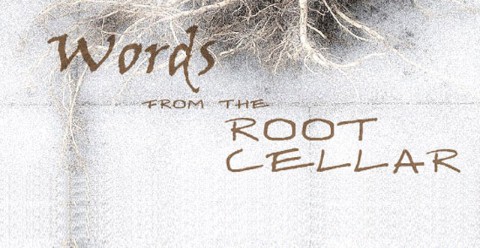Nervous Cows and Turkey Poop
(A final word on stress)
By Axie Barclay
The perception of stress is hard-wired, according to a study from the University of Notre Dame. It is also tied to an individual’s personality and cognitive reaction. Two people, when faced with a similar situation, perceive the situation differently. Say the cows are out again because one well-meaning person fed hay and left the gate open. One person might say to themselves, “this isn’t so bad, I can handle this,” while the other person’s interior monologue is approaching a national crisis. (I’m not going to comment on which one is me and which one is my grandmother, but let’s just say I’m not the one upset enough to threaten to go into assisted living where the turkeys won’t poop on my porch.)
In our exploration of stress, we’ve looked at how stress affects your physical and emotional well-being, how to identify stress, and ways to relieve stressors, such as reaching out to others and practicing acceptance of your own limitations. To wrap up this series, I’d like to look at mind-set, since that is a vital part of stress. Humans deal with stress on a much more cerebral level than animals do. Most of the time, our bodies aren’t stressed by want of water, food, or by environment. There are exceptions of course, but those seem to run along the lines of an overabundance of resources (think a McDonald’s across from every Starbucks across from every Speedway) rather than too little. Therefore, we experience stress as situational rather than environmental, and it’s our perception of this that’s hard-wired in our psyche. While we can’t change our heredity, we can change our brains.
The brain is made up of neural relays that tell the body what it is experiencing; things such as hot, cold, hunger, thirst, romantic notions, or a million other things, including our old buddy stress. Just as you can train your brain through learning and physical exercise, or build it up against Alzheimer’s and other dementia-related diseases with challenges like crossword puzzles, you can train your brain for stress. Basically, you can train yourself into stressing out. An example from the farm comes from watching my cattle. Nervous mother cows make nervous calves. Often, even if another mother raises the nervous cow’s calf, or we bottle feed the calf if the nervous mother rejects it, the calf remains nervous. It seems to be a combination of nature versus nurture, but the Notre Dame study in humans settles the blame primarily on nature. So what’s a nervous person to do? Luckily, just as you can train yourself to stress, you can also train yourself out of it.
First, know yourself. What stresses you out? Stress is often caused by being faced with situations we don’t know how to react to. If you don’t know, start taking small steps so you do know. Figure out who to ask, talk to a friend, research on the internet, read a book, whatever it takes to help you feel more comfortable reaction to the situation you’re facing. Don’t be afraid to find positive support and ask questions.
Next, evaluate your thinking. Are you thinking clearly and realistically about this situation? It’s easy to blow things out of proportion when you’re upset. Try to distance yourself, take a step back, and evaluate with a clear head. Again, if you have a reliable network of friends or family to fall back on, ask their opinion, especially if someone isn’t as close to or emotionally involved with the situation as you are. Take time to sort out your negative emotions and figure out if they’re realistically founded.
Lastly, look at your facts and options and try to take one positive action. It’s easy to fall into a cycle of complaining and wallowing in negativity when you’re stressed, but that won’t help in the long run. If work is stressful, try and find one thing in your day that you can change for the better. At the very least, find one thing, or better yet three things, in your day to be grateful for. If you actively seek out good things, then more good things will become apparent and everything else won’t be overshadowed by the bad.
We all get stressed. And we’re all equipped to handle it differently, from our genetic makeup to the tools we’ve gained and learned from past experiences. The important thing to remember is that we’re not alone and there are ways to deal with the obstacles life throws our way. A lot of these ways include our mindset and the people we surround ourselves with. In the greatest adversity we find out the people who care the most about us and who we care the most about. The old adage “what doesn’t kill you makes you stronger” isn’t that far off-base. Except you aren’t the only one who’s made stronger in such occasions, but also strengthened is your relationships. Don’t be afraid to reach out for help. Don’t be afraid to help others, even if it’s just calling to listen about their bad day. Stress is relative, we all experience it differently. There are lots of ways to alleviate and re-approach the stress in your life. So take a deep breath, be grateful, and don’t worry, I’ll have a talk with the turkeys about the defiling the porch. I’m sure they’ll be receptive since Thanksgiving is over.
More info on stress:
- Nauert PhD, R. (2012). Job Stress Influenced More by Heredity Than Environment. Psych Central. Retrieved on January 13, 2013, from http://psychcentral.com/news/2012/09/17/job-stress-influenced-more-by-heredity-than-environment/44711.html
- Martin, B. (2006). Stress and Personality. Psych Central. Retrieved on January 13, 2013, from http://psychcentral.com/lib/2006/stress-and-personality/
- Matta, C. (2012). How Adversity Can Impact Your Success. Psych Central. Retrieved on January 13, 2013, from http://blogs.psychcentral.com/dbt/2012/10/how-adversity-can-impact-your-success/
- Matta, C. (2012). 3 Personality Traits that Increase Stress Levels at Work. Psych Central. Retrieved on January 13, 2013, from http://blogs.psychcentral.com/dbt/2012/05/3-personality-traits-that-increase-stress-levels-at-work/
- Suval, L. (2012). Better Management of Stress and Its Effects. Psych Central. Retrieved on January 13, 2013, from http://psychcentral.com/lib/2012/better-management-of-stress-and-its-effects/
- Tartakovsky, M. (2011). 6 Ways to Stress Less at Work. Psych Central. Retrieved on January 13, 2013, from http://psychcentral.com/lib/2011/6-ways-to-stress-less-at-work/
 Axie Barclay is a Michigan writer with a cow-habit. Having discovered the joys and potential for growth inalternative agriculture, she quests ever longer and harder for ways to combine farming and writing into a business. When not milking cows, making disgruntled noises at the latest disgusting thing the heeler dogs dredge up, riding horses, or keeping the fence up around her small beef herd, she’s holed up reading an eclectic array of books or tapping out pages. When not working, she enjoys kicking back with her honey, family, and friends at a bonfire with some beers. Chat her up on Twitter and Facebook, /axieb, or http://barclayfarmsandlit.blogspot.com where she delves into literature and agriculture with a relish… and occasionally ketchup. Soon to be homemade.
Axie Barclay is a Michigan writer with a cow-habit. Having discovered the joys and potential for growth inalternative agriculture, she quests ever longer and harder for ways to combine farming and writing into a business. When not milking cows, making disgruntled noises at the latest disgusting thing the heeler dogs dredge up, riding horses, or keeping the fence up around her small beef herd, she’s holed up reading an eclectic array of books or tapping out pages. When not working, she enjoys kicking back with her honey, family, and friends at a bonfire with some beers. Chat her up on Twitter and Facebook, /axieb, or http://barclayfarmsandlit.blogspot.com where she delves into literature and agriculture with a relish… and occasionally ketchup. Soon to be homemade.

